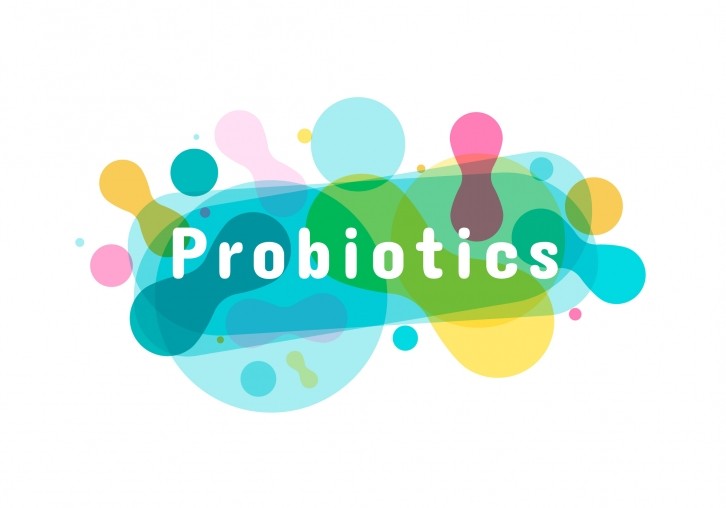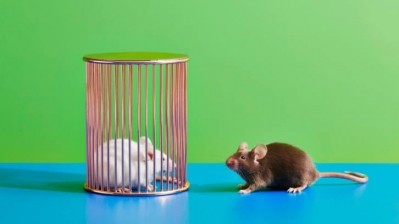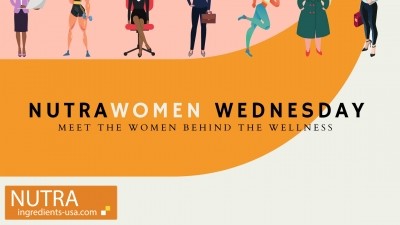Probiotic blend may boost mood and offer anxiety benefits: Probiotical study

Data published in Frontiers in Nutrition indicated that six weeks of supplementation with the probiotic quartet also led to increases in serotonin, a metabolite of the amino acid, L-tryptophan. Blood concentrations of serotonin remained higher after three weeks after the intervention.
“We contemplated that although serotonin may be produced in the gut and enter the blood, it cannot be transported into the brain. Circulating serotonin increases may be a surrogate signal of other metabolites being produced in the gut, or influence neural signals from the gut to the brain, and mediate the positive changes in mood that we observed,” said Chad Kerksick, PhD, Director of the Exercise and Performance Nutrition Laboratory at Lindenwood University and lead researcher for the study.
“We are finishing a different manuscript from this study, which characterizes the effects of Bifizen on sleep dynamics. Our data, combined with other data, point towards a biologically real and measurable impact.”
Dr Kerksick first presented the study’s findings at Probiota in Barcelona in February as the winner of the event’s Scientific Frontiers. The study was co-sponsored by Probiotical (Italy) and Ashland (USA).
COVID challenges
The study was initiated just before the COVID-19 pandemic was declared, a time when stress and anxiety levels increased in response to the pandemic. This was reflected in increasing sales of mood support supplements, notably adaptogens like Ashwagandha.
The study was stalled at the start of COVID-19 and then restarted in September, 2020.
“We encountered significant challenges in the performance of this trial and appreciate the commitment of the subjects who completed the study,” said Dr Kerksick. “What remains intriguing is the influence of a global pandemic on the psychosocial and mental health of our otherwise healthy subjects.
“Our findings offer an enticing suggestion that Bifizen could have effects in persons living with sub-clinical depression and anxiety, but this would need to be borne out in systematic clinical trials in appropriate populations.”
Study details
Scientists from Lindenwood University, Increnovo (Milwaukee, USA) and Probiotical srl (Novara, Italy) recruited 70 healthy women and men to participate in their randomized, double-blind, placebo-controlled trial. The volunteers, who had an average age of 31, were randomly assigned to either the probiotic group or placebo for six weeks. The supplement consisted of one billion colony forming units (CFU) of each of Limosilactobacillus fermentum LF16 (DSM 26956), Lacticaseibacillus rhamnosus LR06 (DSM21981), Lactiplantibacillus plantarum LP01 (LMG P-21021), and Bifidobacterium longum 04 (DSM 23233) for a total dose of four billion CFUs.
All participants completed a series of questionnaires, including the Beck Depression Inventory (BDI-II), State-Trait Anxiety Inventory (STAI), and Leiden Index of Depression Sensitivity (LEIDS-R), and plasma concentrations of cortisol, dopamine, serotonin, and C-reactive protein were also measured at the end of the six-week intervention and again three weeks after the trial ended.
Results showed that the participants in the Bifizen group reported significant improvements in scores for depression, anxiety, and “cognitive reactivity to a sad mood”, with the improvements observed after four and six weeks of supplementation and they endured for three weeks after the end of the intervention. No changes were noted in the placebo group.
Moreover, the anxiety and mood response scores were significantly superior in the Bifizen group when compared to placebo, reported Dr Kerksick and his co-workers.
While no changes were observed for cortisol, dopamine, or C-reactive protein, increases in serotonin were recorded for the probiotic group.
“One of the primary underlying mechanisms to explain the changes we observed in the mood-related questionnaires was the notion that our probiotic supplementation regimen altered the composition of the intestinal microbiota which impacted the production of neurotransmitter precursors that were involved in mood disposition, etc,” wrote the researchers. “We did not collect fecal samples throughout our investigation and as a result this suggestion is only based upon speculation from previous findings.”
The gut-brain axis
Commenting on the study’s findings, Probiotical SpA CEO Vera Mogna said: “We are inspired by these findings from Dr. Kerksick and his colleagues. Our 2019 study yielded promising results; this follow-up study extends the findings and includes the additional overlay of COVID-19.
“We are invigorated by these results and will continue to pursue the interface of the gut-brain axis and rationally designed probiotic formulations.”
Source: Frontiers in Nutrition
Volume 10, 2023, doi: 10.3389/fnut.2023.1219313
“A randomized controlled trial to examine the impact of a multi-strain probiotic on self-reported indicators of depression, anxiety, mood, and associated biomarkers”
Authors: K.E. Walden et al.
















